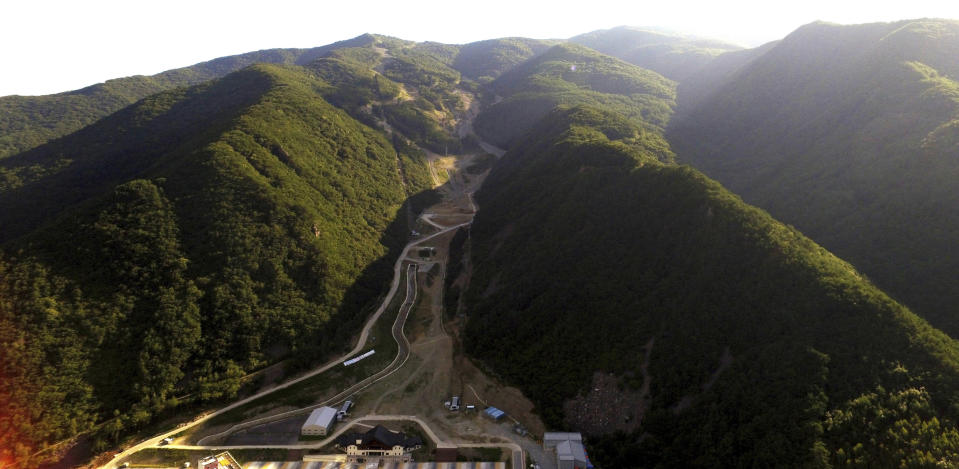PyeongChang Olympic venues could be demolished

Just months after the end of the Closing Ceremony of the PyeongChang Olympics, venues are being demolished or left to ruin. And now, even despite a new proposal to bring the Games back to South Korea, it’s likely many of the facilities built for the 2018 Games, at phenomenal cost, will end up demolished all the same. It’s the same story, every Olympics, and it never gets any easier for the host community to bear.
PyeongChang’s building boom
The 2018 Winter Games were set up along a 60-mile stretch in the eastern half of South Korea, a two-hour drive from the more populous and prosperous Seoul. PyeongChang is a fishing community, one without the resources to maintain half a dozen gargantuan arenas, a bobsled run, a ski jump, and dedicated ski slopes.
South Korea spent $13 billion preparing for the Games, with $110 million of that alone going to the construction of a stadium that was used exactly four times: the Opening and Closing ceremonies of the Olympics and Paralympics. The facility has already been demolished, with only the torch still standing.
But what of the other facilities in the coastal Gangneung province? South Korea built separate arenas for hockey, speed skating, ice skating, curling, and more, clustered into a small area in the heart of town, in an area roughly economically analogous to, say, rural West Virginia or Ohio. One arena would be sufficient for a town this size, but half a dozen? The coastal government has already rejected a proposal to turn one of the arenas into a gigantic fish cooler. Could destruction be next?
“Honestly, I can’t think of any other way,” Sangho Yoon, a senior researcher at Seoul’s Korea Economic Research Institute, told the Associated Press. “Whether it’s the national government or regional government, somebody will have to pay [to maintain the venues]. The history of past host cities isn’t promising. Very few of them experienced a meaningful tourism bump after the Olympics.”
A future for PyeongChang?
The Korea Development Institute is preparing to conduct a six-month study to consider the feasibility of the arenas. Local provincial officials have proposed a pitch, with North Korea, to host the 2021 Asian Winter Games, which would mean the facilities would be kept for future use. But beyond that? It’s tough to see any reasonable options.
“If Gangwon insists on keeping the venues, it’s much better to build plans around the 2022 Winter Olympics in Beijing, presenting the region as a training ground for Olympic athletes before they head into China,” Yoon told the AP. “You know that the Olympics will be held in Beijing, but you don’t know what will happen with North Korea.”

____
Jay Busbee is a writer for Yahoo Sports. Contact him at jay.busbee@yahoo.com or find him on Twitter or on Facebook.
More from Yahoo Sports:
• Meyer’s grim warning to NFL team about Aaron Hernandez
• School official sorry for racist remark about Texans QB
• New book claims Brady feels ‘trapped’ with Belichick
• Red Sox fans make problematic discovery

 Yahoo Sports
Yahoo Sports 